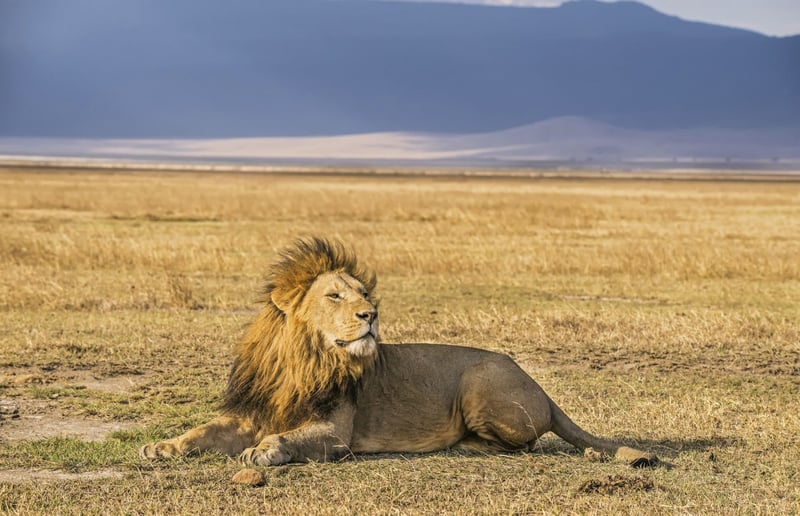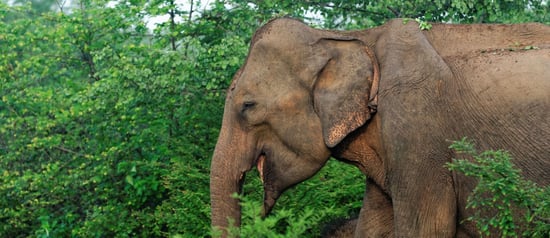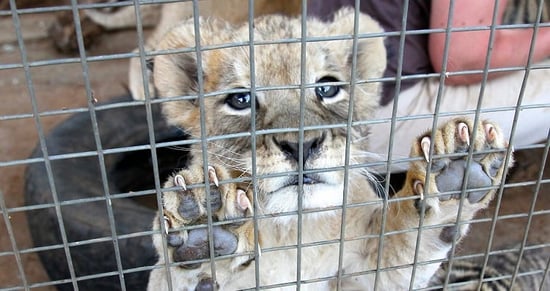
Two years on, many more lions like Cecil need our protection
News
Two years ago, Cecil the lion was killed by a dentist from Minnesota who reportedly paid US$54,000 to shoot Cecil with a bow and arrow
Cecil, a national treasure who lived in Hwange National Park in Zimbabwe, was wounded but not killed instantly. It wasn’t until the hunters tracked him down the next day that Cecil was shot again and finally killed. Reports claim he suffered for up to 40 hours before dying – a slow and agonising death.
Cecil’s death shows the fatal attraction of wildlife tourism. It sparked mass outrage around the world. But Cecil is just one of many instances of suffering and brutality, part of a profitable tourism industry in southern Africa that threatens lions’ welfare from the moment they are born. Thousands more lions are being threatened by unethical tourism practices right now.
And so begins a lifetime of suffering
In countries such as South Africa, Zimbabwe, Zambia and Mauritius, tourists can have ‘once in a lifetime’ close encounters with captive wild lions in lion parks.
These facilities depend on a constant supply of lion cubs – usually bred in captivity and taken from their mothers shortly after birth. In the wild they would not be weaned until they were eight months old, so this premature separation can be extremely stressful.
The cubs then enter into a relentless cycle of handling and photos with tourist after tourist, day in, day out. In the wild, cubs this young are fiercely protected by their mothers. Handling by inexperienced tourists exposes the cubs to injury. The chronic stress they suffer causes some cubs to lose their hair and develop diarrhoea or other illnesses.
Of course, cubs grow – but the exploitation doesn’t end. When they become too unwieldy to be held, many young lions are used for lion walks with tourists. Some reports suggest they are drugged into compliance.
All the while, lions are kept in unsuitable enclosures and fed unnatural diets that do not meet their most basic welfare needs.
Once young adult lions outgrow lion parks, their fates are uncertain. Adult lions may be killed as they are no longer useful, or sold to zoos, lion farms or private collectors. They cannot be released into the wild.
Park owners say they do not supply their adult lions to canned hunting operations (where lions are hunted in an enclosed area they cannot escape). But they have little control over what happens to them after they are sold. The lion cubs parks profit from with tourist selfies may grow up to be the lions shot by foreign hunters who pay tens of thousands of dollars to kill them.
If the public outrage over the death of Cecil the lion is anything to go by, people worldwide want to protect wild animals.
If the outrage over the death of Cecil the lion is anything to go by, people worldwide want to protect wild animals.
Our wildlife work
Around the world, wild animals are being exploited. They’re hunted down, trapped and farmed in captivity, all to be sold and abused for entertainment, medicine, fashion, pets and products.
Donate to protect lions
Right now, vulnerable lion cubs are being torn from their mothers and exploited for financial gain, human entertainment, or traditional medicine.


